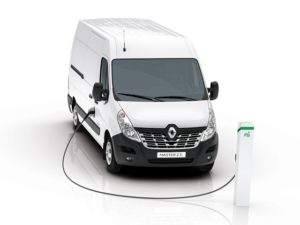Local authorities and city planners need to have a solid understanding of both the benefits and limitations of electric vans when making decisions on clean air policies.

So says Arval as it points out that individual cities are increasingly taking responsibility for air quality, in particular clean air zones, and making decisions that will likely impact on local operators.
Eddie Parker, LCV product manager, explained: “Within these dialogues, electric vans have tended to be talked about in the same breath as electric cars, without any awareness of the payload limitations that are currently inherent in the use of electric light commercial vehicles.
“As the industry now realises, these ELCVs lose range very quickly when laden and that makes the applications for which they are suitable quite specific. They are not at the same level of operational practicality as the electric cars with which legislators are probably much more familiar.
Parker explained that decisions for adopting electric vans were much more complex than for cars due to the inverse relationship between payload and range – a key reason why electric vans have not seen a similar level of market penetration to electric cars so far.
“If you know that you are driving a distance each day that is within the range of an electric car and have access to a charger, it is relatively easy to swap out of your current petrol or diesel. The situation is not the same for electric vans. As they are laden, the range drops very, very quickly so the applications for which they are suitable are, so far, relatively limited.”
He added that the ongoing drive on air quality in cities could make it very difficult for fleets if legislators want to create zero emissions zones in the near future and expect electric van use to become widespread as a result
Parker explained: “Unless there is a step change in the available technology, such a move will create massive issues for fleets operating in those areas. We need to ensure that the people making these decisions are properly informed.
“Our view is that the fleet sector at both a national and local level needs to ensure that legislators have a good understanding of these issues. We have seen from the clean air zone debates that cars and vans tend to be seen as one type of vehicle when, from an operational point of view, they are not.”

